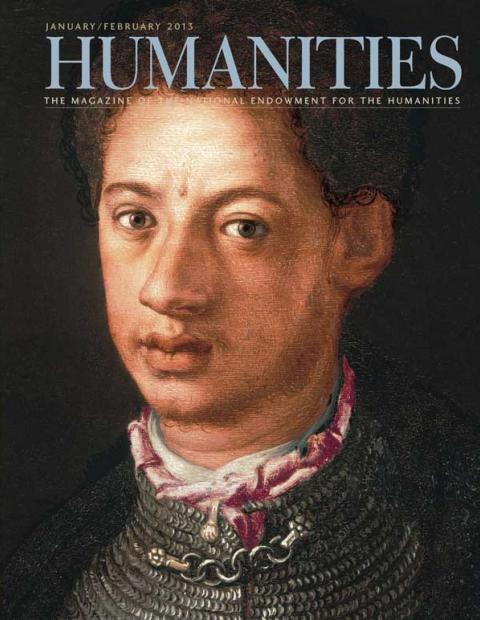Make sure your counterfeit identity papers are in order, because for this edition of IQ, we are signing up with the Office of Strategic Services (OSS) for a daring midnight operation under the Aegean sky. Susan Heuck Allen’s Classical Spies: American Archaeologists with the OSS in World War II Greece follows a colorful cast of academics as they trade excavation for intelligence gathering. Allen, who is a lecturer in the Department of History, Philosophy, and Social Sciences at the Rhode Island School of Design and a visiting scholar in Classics at Brown University, wrote the book with the help of an NEH fellowship.
Why was OSS interested in hiring classicists?
Archaeologists spoke the languages and knew the people and the lands to which they were assigned. Language proficiency was critical. Female classicists who did not venture overseas learned Japanese and tracked battleships or worked in cryptography.
Most OSS agents tasked with working on Greece had ties to the American School in Athens. What is it?
The American School of Classical Studies at Athens is the research home of all American scholars excavating or doing research in Greece. The school, founded in 1881, helps Americans get excavation permits from the Greek government and has a library and a hostel where the archaeologists live while in Athens. Two OSS veterans became postwar directors of the school.
Who was Rodney Young?
Young was a coddled child of the Gilded Age, a product of St. Paul’s and Princeton, who left the United States in 1929 to study at the American School and dig on its excavations. Through these experiences, he grew to love Greece and the Greeks. When Greece was attacked by Mussolini’s forces, Young volunteered to fight with the Greeks and drove an ambulance for the Greek Red Cross until he was critically wounded during an air attack.
What role did he play in turning classicists into spies?
After being recruited by an older Princeton colleague, Young moved to Washington and Cairo to organize OSS Secret Intelligence for Greece. He recruited his fellow archaeologists during a May 1942 meeting of the American School’s Managing Committee.
Did classicists make good spies?
Their bosses rated their language proficiency “most valuable,” their performance “superior,” and their work “really outstanding.” Amongst themselves they referred to the work as “hush, hush.” They took an oath of secrecy, which they almost never broke.
Where did OSS set up its base of operations for Greece?
Cairo served as the operational hub for all OSS missions to Greece. From Cairo, satellite bases radiated out to Istanbul, Izmir, and Edirne in Turkey; Alexandria, Egypt; Bari, Italy; and Cyprus.
What were some of the code names that were used?
The OSS Greek Desk in Cairo used bird names, such as Pigeon, Sparrow, Chickadee, Owl, Thrush, Vulture, Eagle, and Duck. Their subagents were given code names related to theirs. One archaeologist who worked under “Duck” sported the moniker “Daffy.”
How well known was the “classicists as spies” story in the academic community? Classified? Open secret?
There were rumors for years—99 percent of which went unpublished—but there was no evidence until I wrote the book.
Why did some people try to dissuade you from telling this story?
A member of the American School of Classical Studies at Athens told me I could not write this book. She worried about how it would affect the reputation of American archaeologists in Greece. I reassured her that the school had no formal ties with any intelligence agency during World War II. Moreover, the archaeologists had worked hand-in-hand with the wartime Greek government-in-exile and that their aim was to help Greece and the Greeks. In fact, years before I published the book, rumors abounded about members of the foreign schools engaging in espionage or intelligence gathering.
Favorite OSS operation?
Operation Honeymoon, the one that got me started, in which my professor evacuated a very attractive female double agent who was wanted dead or alive by the Germans.
How did you first hear the story?
One night at “ouzo hour” on the Greek island of Kea, my elderly professor asked us if we had heard of “Cicero.” He did not mean the Roman orator, but rather an Albanian Turk who had infiltrated the British embassy in Turkey during World War II and, while posing as the ambassador’s valet, sold Allied secrets to the Germans. He told us how he had arranged for a female double agent, the one who had fingered “Cicero,” to escape from Turkey by moonlight in a small fishing boat. Then he grew silent. He had said too much.
If you had a code name, what would it be?
“Clio,” which is not only the name of the Greek muse of history, but also one of my sources. She was a trained concert pianist who worked with Rodney Young in the Greek Red Cross and the OSS. Although she was a recluse, Clio allowed me into her world, dredging up exquisitely painful and telling war stories and making the war come alive. At our first meeting, she told me this was her story and she wanted to take it to the grave—then she chose to trust me with it. Every year when I swim Silver Lake, my official contestant’s name, inscribed on my left arm, is Clio.


